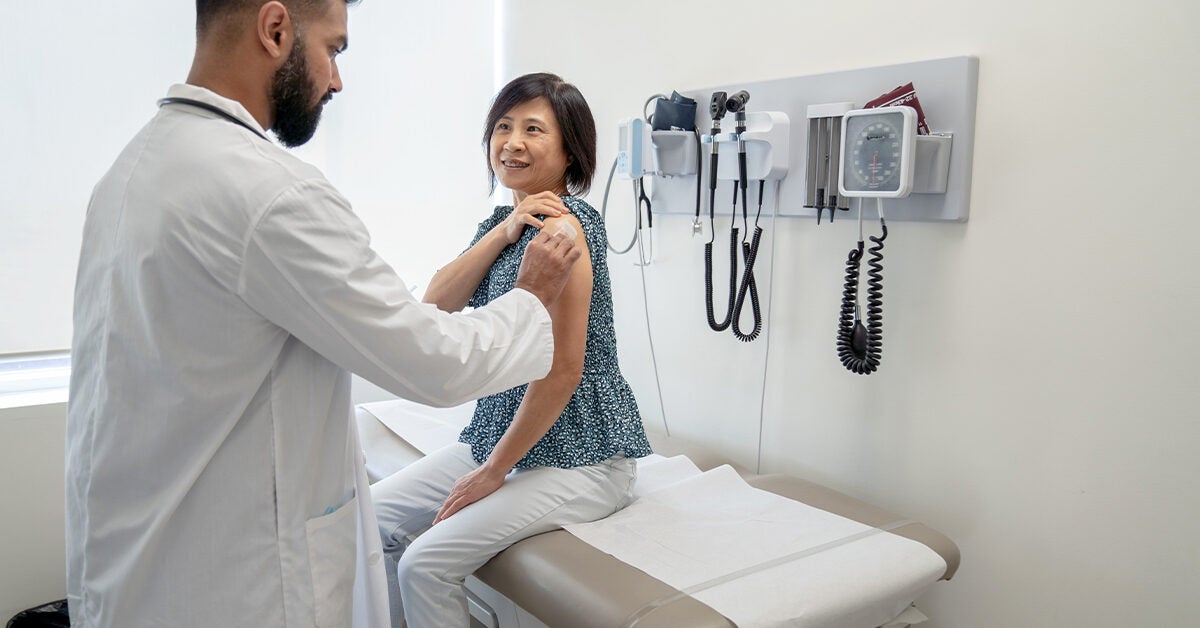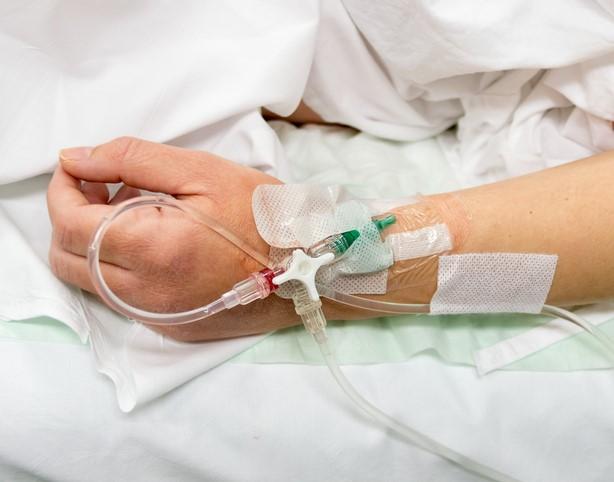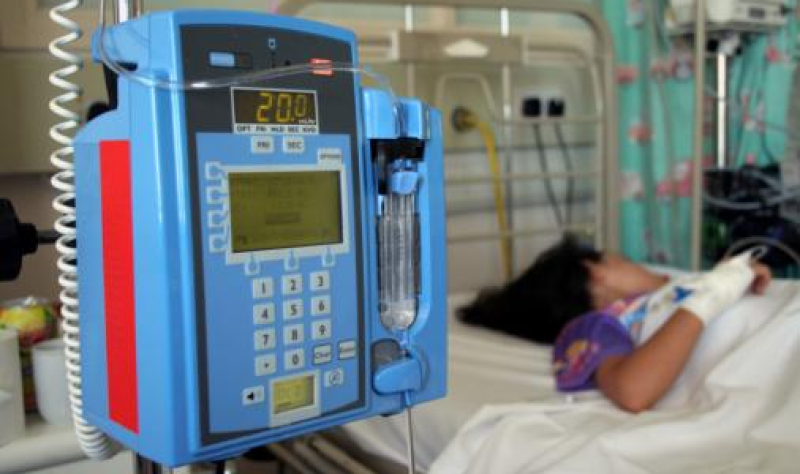COVID Vaccine and Multiple Myeloma: Your Questions Answered


Multiple myeloma is a blood cancer that affects plasma cells in your bone marrow. Plasma cells help your body respond to infection. If you have multiple myeloma, your plasma cells become abnormal and begin to grow and divide out of control.
Accumulation of myeloma cells in the bone marrow can crowd out healthy blood cells. This can lead to anemia, easy bleeding, and an increased risk of infections. Myeloma cells can also make antibodies that damage your kidneys.
If you have multiple myeloma, you may have concerns about receiving the COVID-19 vaccine. However, it’s very important that you do so in order to protect yourself from becoming seriously ill due to COVID-19. Keep reading to learn more.
The CDC has a separate vaccination schedule for those with a weakened immune system, such as individuals with multiple myeloma. The table below shows the current vaccine recommendations for immunocompromised adults.
Check with your doctor before getting vaccinated
Some people with multiple myeloma may need to delay vaccination. According to the NCCN recommendations, those receiving a stem cell transplant or CAR T-cell therapy should wait at least 3 months after their treatment to get vaccinated.
Overall, research has found that the reported side effects of the COVID-19 vaccine are similar between the general public and people with cancer. According to the CDC, these can include things such as:
If you have concerns about the risks associated with getting the COVID-19 vaccine with multiple myeloma, discuss them with a doctor.
Because people with multiple myeloma already have a weakened immune system, their response to the COVID-19 vaccine isn’t usually as strong. This means that if you have multiple myeloma, the COVID-19 vaccine may be less effective for you.
One 2022 study of 238 people with multiple myeloma found that only 54% of vaccinated people made neutralizing antibodies. These are antibodies that prevent the virus that causes COVID-19 from binding to a host cell.
Additionally, a 2021 study found that, compared with people without cancer, those with multiple myeloma are at an increased risk of breakthrough infections and hospitalization after COVID-19 vaccination.
However, it’s important to remember that having some protection is always better than having no protection.
You can choose which vaccine you get, but the CDC recommends mRNA vaccines over the Johnson & Johnson adenoviral vector vaccine. Pfizer-BioNTech and Moderna produce the two mRNA vaccines.
The recommendation comes after a review of data on the safety and effectiveness of the Johnson & Johnson vaccine. Overall, mRNA vaccines were more effective and had a lower risk of serious side effects.
According to the National Cancer Institute, there’s no evidence that the COVID-19 vaccine lowers the effectiveness of your cancer treatment. However, some multiple myeloma treatments may lower the effectiveness of the COVID-19 vaccine.
A 2021 study found that people receiving certain types of targeted therapy or CAR T-cell therapy had a lower antibody response to two doses of an mRNA vaccine.
However, a 2022 study showed that receiving a third vaccine dose raised antibody levels in individuals with multiple myeloma. This also included those receiving treatments associated with a lower antibody response to two vaccine doses.
Yes, it’s important to get the COVID-19 vaccine even if you’ve already had COVID-19. Some research has found that those who don’t get vaccinated after having COVID-19 are at an increased risk of contracting the infection again.
Additionally, other research has found that getting your COVID-19 vaccine either before or after contracting COVID-19 is associated with enhanced immunity. You may see this referred to as hybrid immunity or super immunity.
If you have multiple myeloma, it’s important to continue to take steps to minimize your risk of COVID-19, even if you’ve been vaccinated. To do this:
- Request that your family, friends, and caregivers also get the COVID-19 vaccine.
- Wash your hands frequently.
- Wear a well-fitting mask and maintain physical distancing when you’re out in public.
- Avoid spaces that are very crowded or poorly ventilated.
- Regularly disinfect high-touch surfaces in your home, such as light switches and doorknobs.
It’s also vital that you monitor your health and contact your doctor promptly if you think that you have COVID-19. Antiviral medications such as Paxlovid are now available to help lower the risk of serious illness due to COVID-19.
People with multiple myeloma are at an increased risk of serious illness due to COVID-19. Because of this, it’s important for them to receive their primary vaccine series and boosters.
While COVID-19 vaccines may be less effective in people with multiple myeloma, some protection from COVID-19 is better than none at all. The side effects of vaccination are also similar to those of the general population.
If you have multiple myeloma, talk with a doctor about getting vaccinated for COVID-19. They can evaluate your situation and current treatment plan to determine an optimal timeline for you to get your vaccine.



